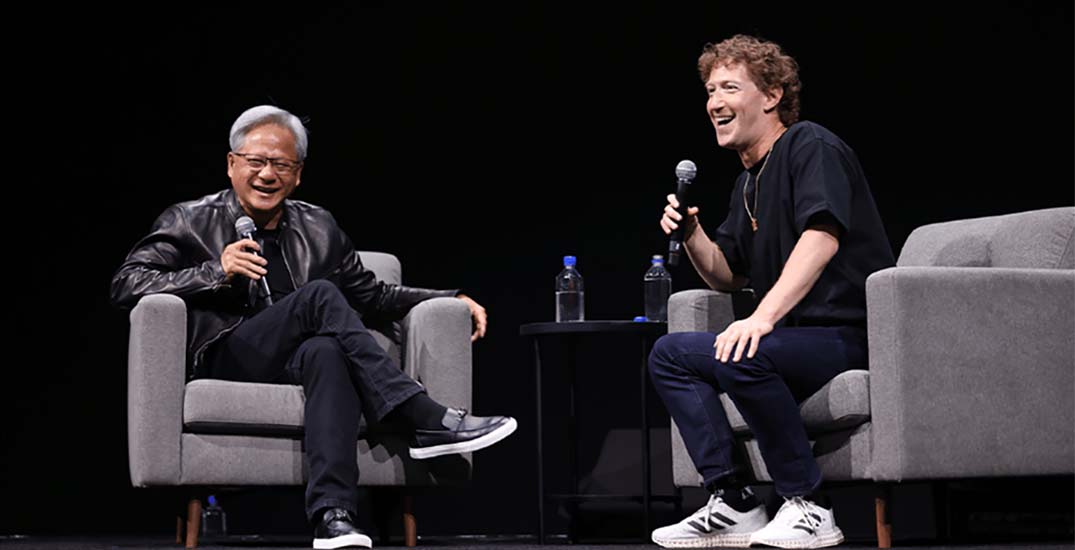Nvidia founder and CEO Jensen Huang discusses the transformative potential of open source AI and AI assistants with Meta founder and CEO Mark Zuckerberg at yesterday’s Siggraph 2024 event.
Zuckerberg kicked off the discussion by announcing the launch of AI Studio, a new platform that allows users to create, share and discover AI characters, making AI more accessible to millions of creators and small businesses.
“Every single restaurant, every single website will probably, in the future, have these Ais …,” Huang said.
“… just like every business has an email address and a website and a social media account, I think, in the future, every business is going to have an AI,” Zuckerberg responded.
Huang credited Zuckerberg and Meta with being leaders in AI, even if only some have noticed until recently.
“You guys have done amazing AI work,” Huang said, citing advancements from Meta in computer vision, language models, real-time translation. “We all use Pytorch, that comes out of Meta.”
Zuckerberg highlighted the importance of open source in advancing AI — with the two business leaders emphasizing the importance of open platforms for innovation.
Meta has rapidly emerged as a leader in AI, putting it to work throughout its businesses – most notably with Meta AI, which is used across Facebook, Instagram and WhatsApp – and advancing open-source AI throughout the industry, most recently with the release of Llama 3.1.
The open-source model represents a significant investment of time and training resources. The largest version of Llama boasts 405-billion parameters and was trained on over 16 000 NVIDIA H100 GPUs.
“One of the things that drives quality improvements is it used to be that you have a different model for each type of content,” Zuckerberg explained.
“As the models get bigger and more general, that gets better and better. So, I kind of dream of one day like you can almost imagine all of Facebook or Instagram being like a single AI model that has unified all these different content types and systems together,” he added.
Zuckerberg sees collaboration as key to more advancements. In a blog post released last week, Zuckerberg wrote that the release of Llama 3.1 promises to be an “inflection point” in adopting open source in AI.
These advancements promise more tools to foster engagement, create compelling and personalized content — such as digital avatars — and build virtual worlds.
More broadly, the advancement of AI across a broad ecosystem promises to supercharge human productivity, for example, by giving every human on earth a digital assistant — or assistants — allowing people to live richer lives that they can interact with quickly and fluidly.
“I feel like I’m collaborating with WhatsApp,” Huang said. “Imagine I’m sitting here typing, and it’s generating the images as I’m going. I go back and change my words, and it’s generating other images.”
Looking ahead, both CEOs shared their visions for the future.
Zuckerberg expressed optimism about bringing AI together with the real world through eyeglasses – noting his company’s collaboration with eyewear maker Luxotic – that can be used to help transform education, entertainment and work.
Huang emphasised how interacting with AIs is becoming more fluid, moving beyond just text-based interactions.
“Today’s AI is kind of turn-based. You say something, it says something back to you,” Huang said. In the future, AI could contemplate multiple options, or come up with a tree of options and simulate outcomes, making it much more powerful.”
* Article by Brian Caulfield

